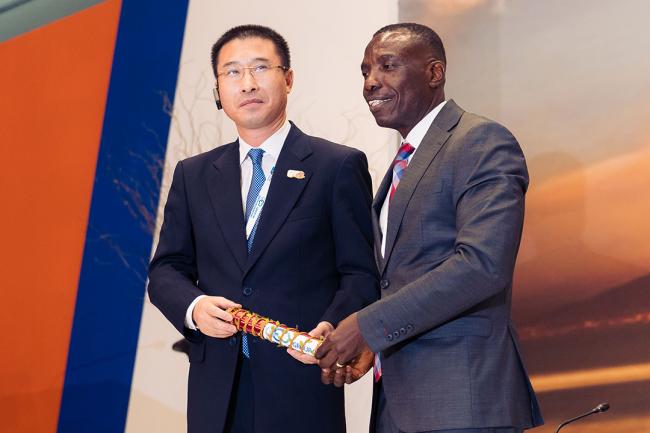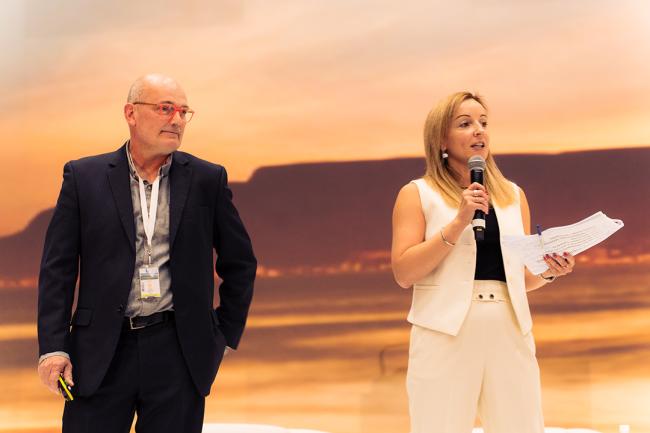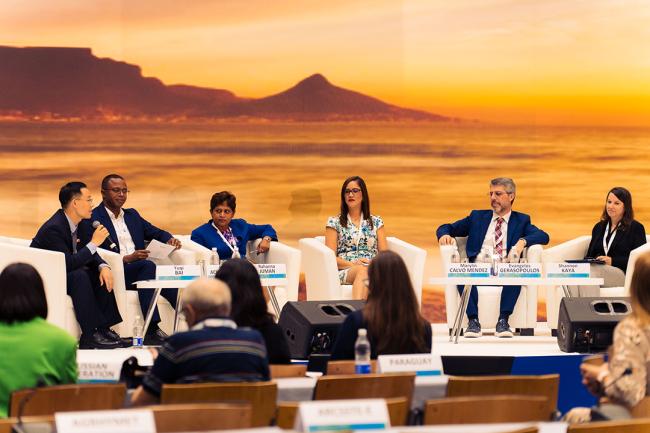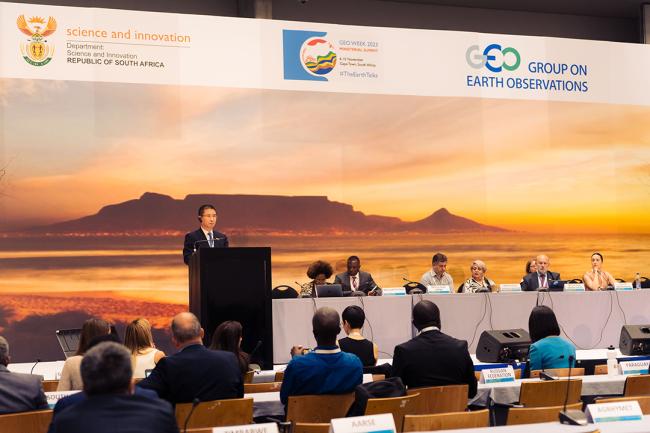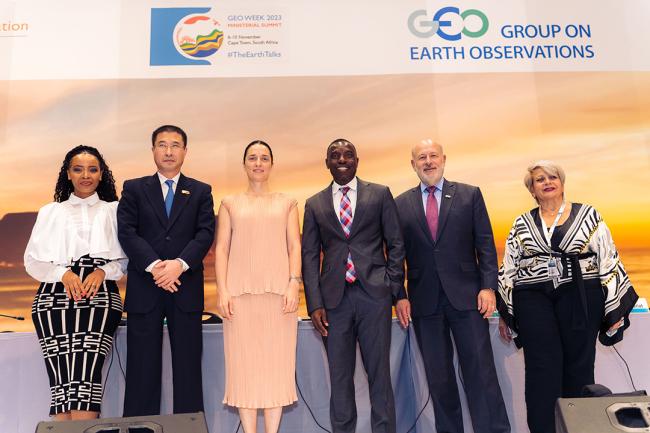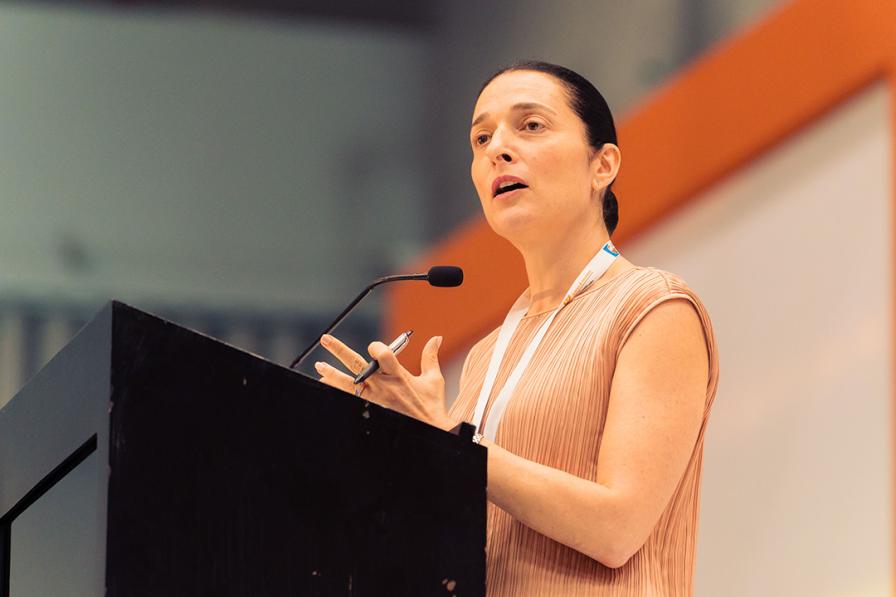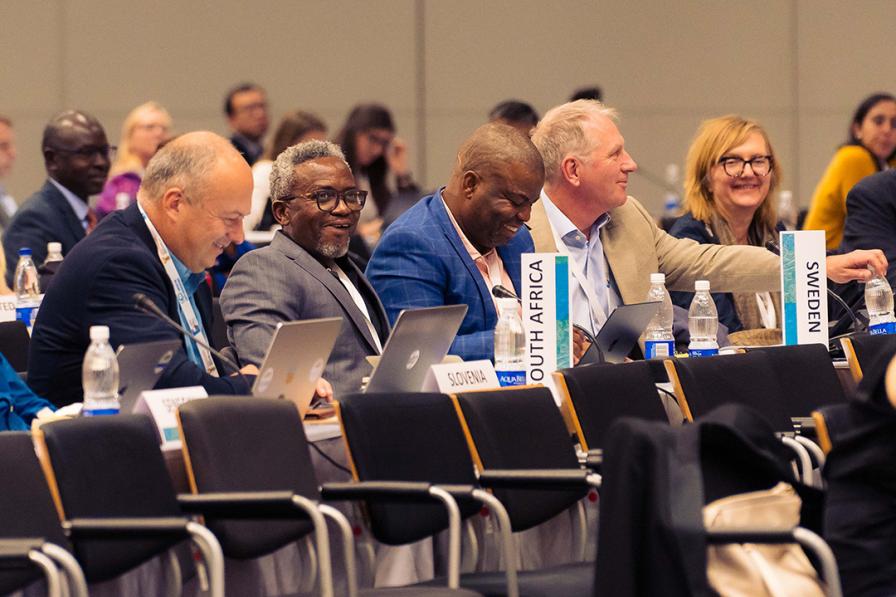The final day of the GEO-19 plenary opened on a high note with the Group on Earth Observations (GEO) showcasing its 2023 GEO Awards, including its Team Impact achievements, and sharing selected stories of triumph from the 2023 Highlights Report. Messages from the awardees included:
- GEO Global Agricultural Monitoring (GEOGLAM) discussing the historical impact of GEOGLAM’s work in crop monitoring and forecasting and underscoring the importance of independent, timely and consensus-based information and the role it plays as a trusted and authoritative source of data;
- GEO Blue Planet sharing their organization’s three core action areas, which are: stakeholder engagement, co-designing fit-for-purpose tools, and capacity development to ensure long-term use of data; and
- the Global Vegetation Pest and Disease Dynamic Remote Sensing Monitoring and Forecasting (GEO-PDRS), describing the GEO-PDRS as a multi-source tool enabling improved accuracy of monitoring and forecasting for 19 major vegetation pests and diseases in a way that leads to a reduction of chemical pesticides use and better, more sustainable management.
Following this, GEO-19 welcomed the launch of the new GEO website, with the GEO Secretariat walking participants through the website, which includes improved user-experience and accessibility, including a color-blind safe design.
In a session focusing on GEO’s coordinated approach to national and global engagements, panelists discussed the challenges and opportunities faced by national GEO offices, which will play a crucial role in implementing the Post-2025 Strategy. Representatives of these national offices shared some of their lessons learned. These included:
- Trinidad and Tobago, noting they were the newest member of GEO and underscoring the importance of data to address contextually sensitive environmental issues;
- Costa Rica, which stressed inter-institutional collaboration as fundamental and the unifying role of a common topic of interest, which in the case of Costa Rica was land cover monitoring;
- Greece, which highlighted specific priorities such as urban resilience and climate change impacts on cultural heritage and adaptation, saying “this was started by real people” who were self-motivated, and emphasized that if “a medium-small country” can do it, “everyone can do it;” and
- Canada, who urged members not to be afraid of the word “secretariat” as it could be as small and simple as a one-person secretariat, stressed partnerships with NGOs and international organizations, and said engagement with the private sector is crucial, including facilitating their participation in GEO Week.
In the afternoon, GEO-19 dealt with procedural matters and Members approved the: Foundational tasks of the GEO Work Programme 2023-2025; Programme Board Members 2024; 2022 Financial Statement and Audit Report; and 2024 Trust Fund Budget and Pledges. Executive Committee Members were also announced for 2024.
Following the handover of the Co-Chair from South Africa to China, GEO Secretariat Director Yana Gevorgyan challenged the GEO community to embrace the challenge of implementing the commitments made over the course of the week, and invited delegates to “continue the conversation” at the next GEO week in April 2025.
To receive free coverage of global environmental events delivered to your inbox, subscribe to the ENB Update newsletter.

